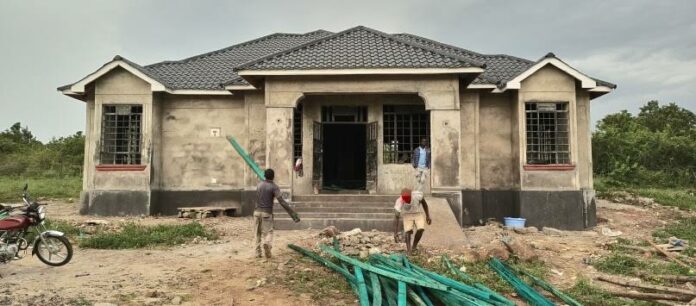For most aspiring home owners, building a dream house is one of the life-long desires. But many in the pursuit of moving in their own home, have suffered loss of time and money in the process of building a house in Kenya. Here are six tips from a first-time home builder.
1. Count the costs before you build
We live in a world where motivators are many. They will remind you that you need to act and not procrastinate. Well, that holds water still but when it comes to building a house, you must first sit down, count the costs and then start the project. Being realistic is very important when you want to build.
Even Jesus knew a few things about construction. In the book of Luke, he said, ‘suppose one of you wants to build a tower,won’t you first sit down and estimate the cost to see if you have enough money to complete it?
Before you start building, you must count the costs of material, labour, approval costs and every single resource that will go into putting the house together.
It’s also prudent for one to have an extra amount over and above the budget so that they can be cushioned from the runaway extra costs that might cripple the project. You don’t want to have a structure that is complete but you can’t afford to do the finishing.
2. You need to be hands on
While delegation has been a proven method of getting work done by trusting other competent people with work, it should be greatly minimised when you are building a house.
In cases where it’s unavoidable, then fully delegate. But from my experience as a first-time homebuilder, delegation doesn’t work well in building the house.
For accurate costs that go into putting together your house, you must be involved in each and every step of the job, even if you are working with a trusted contractor.
If you are not hands on, you might buy materials at an inflated cost that end up eating into your money. It’s especially risky to delegate the work if you don’t know the person in charge or if you dot trust them.
In case you can’t be there, look for someone you trust. If you have a good, trusted project manager, you will have a very smooth building process that will be a headache free.
3. Don’t pay per day, pay for work done
The normal process that many real estate developers use in paying the wages is on a daily basis. However, from experience, I would recommend that you pay based on the work done.
For each fundi, designate the surface area that needs to be covered. Or better still, by the number of building blocks used per day so that you pay them based on the work done.
READ: Benefits of building a house in a controlled development estate
Paying pay per can be very hard to determine whether the fundis have earned their worth for the day. In some scary scenarios, you might find that the fundis might be delaying so that they earn more from a project. Also, it is good to set strict deadlines for those working for you.
A basic two-bed room house should not take more than three months to be finished. But the timelines are relative to the size of the labour you want to employ.
4. Have the right labour
Speaking of labour, you must ensure that you have the right qualified people working for you. If possible, get recommendations before you employ them. The construction industry like all other industries is full of crooks. To sieve the crooks from the legitimate ones, you have to vet them.
You don’t want to have quacks managing your work. It will be costly in the end if you don’t have the right people working for you.
5. Compliance! Compliance!
In a world where shortcuts sometimes look very lucrative and time-saving, I want to urge that you must not apply the same in the construction industry. Before you start your building process, get all the requisite compliance approvals first. Get a NEMA certificate, get a county council permit, and get the national construction authority certificates.
What you need to do to buy or build your house cheaply in Kenya today
Do not succumb to the temptation of following shortcuts. Just go the whole mile and ensure that every approval is duly obtained.
You don’t want a scenario where after pouring your resources into a building, it’s only marked for demolition. You don’t want to build a house then later regret. Follow the due process till the end.
6. If you have a plot, it is easier to build than to buy
I’ve come to appreciate the value of building your own house. The lessons you learn are invaluable. The amount of money you will save is incredible.
Then you get to design a house just the way you want it. I would encourage Kenyans to buy plots and build their own houses. The hustles are many but if you choose that path, the rewards are numerous.









